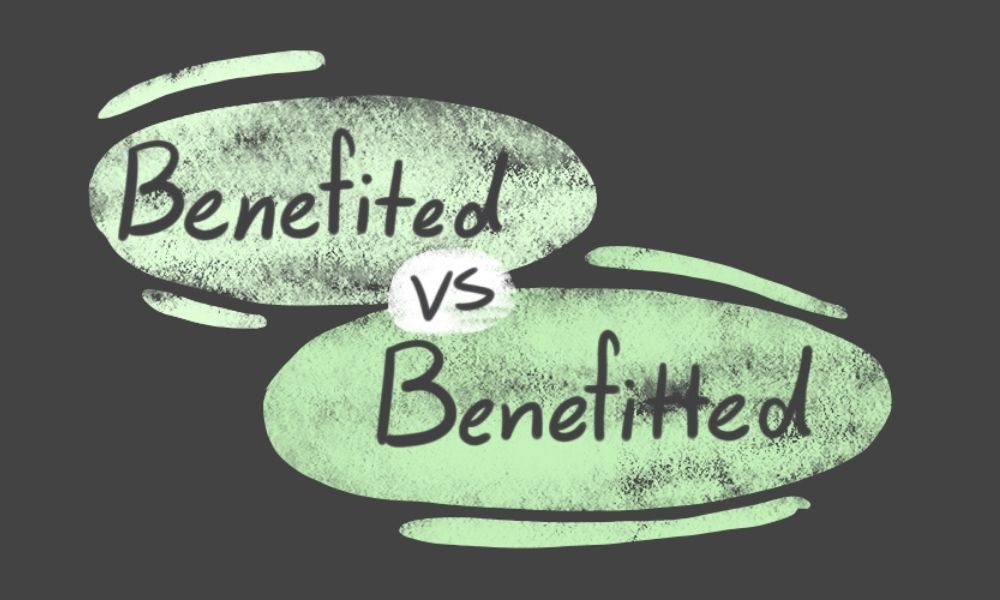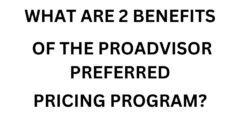The English language is constantly evolving, with new words and phrases being added and old ones falling out of use. One such word that has sparked a debate among language enthusiasts is “benefitted” or “benefited.” Both words are commonly used in everyday speech and writing, but which one is correct? In this article, we will delve into the history and usage of these two words to determine which one is the preferred form in modern English.
Contents
The Origin of “Benefitted” and “Benefited”
Before we dive into the debate, let’s first understand the origins of these two words. Both “benefitted” and “benefited” are derived from the verb “benefit,” which comes from the Latin word “beneficium,” meaning “good deed” or “kindness.” The verb “benefit” means to gain an advantage or receive something beneficial. It is often used in the context of receiving help or support from someone or something.
The word “benefitted” first appeared in the English language in the 16th century, while “benefited” came into use in the 17th century. Both words have been used interchangeably throughout history, with no clear preference for one over the other. However, in recent years, there has been a growing debate over which form is more correct.
Read:Is there a benefit to filing taxes jointly?The Argument for “Benefitted”
Those who argue for the use of “benefitted” claim that it is the correct form because it follows the standard rule for forming past tense verbs in English. According to this rule, regular verbs are formed by adding “-ed” to the end of the base form. For example, “walk” becomes “walked,” “talk” becomes “talked,” and so on. Since “benefit” is a regular verb, it should follow the same pattern, making “benefitted” the correct form.
Furthermore, the use of “benefitted” is supported by several reputable dictionaries, including Merriam-Webster and Oxford English Dictionary. These dictionaries list “benefitted” as a valid past tense form of “benefit,” further strengthening the argument for its use.
The Argument for “Benefited”
On the other hand, proponents of “benefited” argue that it is the more commonly used form in modern English. A quick search on Google Ngram, a tool that tracks the frequency of words in books, shows that “benefited” has been consistently used more than “benefitted” since the 19th century. This suggests that “benefited” is the preferred form in written English.
Moreover, “benefited” is also the preferred form in American English, while “benefitted” is more commonly used in British English. This could be due to the influence of American English on the global stage, with American media and culture being widely consumed around the world.
Read:Which of the following is not a benefit of globalization?The Verdict: Which One is Correct?
After examining the arguments for both “benefitted” and “benefited,” it is clear that there is no definitive answer to which one is correct. Both forms have been used interchangeably throughout history, and both have their supporters. However, there are a few factors to consider when deciding which form to use.
Formality and Context
In formal writing, such as academic papers or business documents, it is generally recommended to use “benefited” as it is the more widely accepted form. This is because formal writing tends to follow standard grammar rules and conventions. On the other hand, in informal writing or speech, both “benefitted” and “benefited” are acceptable.
Additionally, the context in which the word is used can also influence which form is more appropriate. For example, in the sentence “The charity event benefitted the local community,” “benefitted” may be more suitable as it emphasizes the action of receiving help or support. On the other hand, in the sentence “The new policy has benefited the company,” “benefited” may be a better choice as it focuses on the outcome or result of the action.
Consistency
Another factor to consider is consistency. Whichever form you choose to use, it is essential to be consistent throughout your writing. Mixing both “benefitted” and “benefited” can make your writing appear inconsistent and unprofessional. Therefore, it is best to choose one form and stick to it.
Read:Which of the following is not a benefit of globalization?Personal Preference
Ultimately, the choice between “benefitted” and “benefited” may come down to personal preference. Some people may prefer the sound or look of one form over the other, and that is perfectly acceptable. As long as the word is used correctly and consistently, both forms are considered correct in modern English.
Examples of “Benefitted” and “Benefited” in Use
To further illustrate the usage of “benefitted” and “benefited,” let’s look at some examples in different contexts:
Examples of “Benefitted”:
- The new tax policy benefitted the middle class.
- The scholarship program benefitted hundreds of students.
- The charity event benefitted the local community.
Examples of “Benefited”:
- The new policy has benefited the company.
- The new technology has greatly benefited our daily lives.
- The new trade agreement has benefited both countries.
The Impact of Social Media on Language
The debate over “benefitted” and “benefited” is just one example of how social media has influenced the English language. With the rise of social media platforms like Twitter and Instagram, people are now communicating more through writing than ever before. This has led to the emergence of new words and phrases, as well as changes in grammar and spelling.
On social media, character limits and the need for quick communication have led to the use of abbreviations, acronyms, and slang. This has blurred the lines between formal and informal language, making it more challenging to determine what is considered “correct” in modern English.
Furthermore, the constant exposure to different forms of English, such as American, British, and Australian, has also contributed to the evolution of the language. People are now more likely to mix and match different forms of English, creating a unique blend that is constantly changing and evolving.
Conclusion:
In conclusion, the debate over “benefitted” and “benefited” is a prime example of how language is constantly evolving. While both forms are considered correct in modern English, there are a few factors to consider when deciding which one to use. Ultimately, the choice may come down to personal preference, but it is essential to be consistent in your usage. As the English language continues to evolve, it is crucial to embrace these changes and adapt to the ever-changing linguistic landscape.





